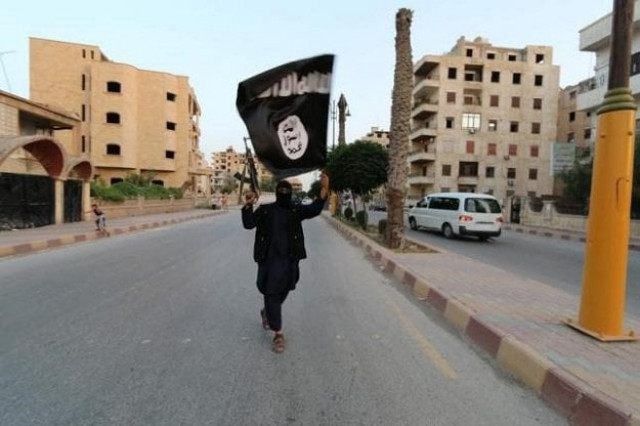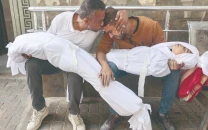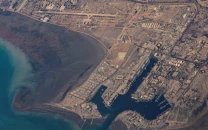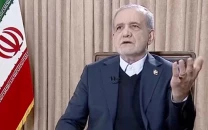Murder of Austrian couple blamed on Islamic State militants
The interior ministry estimates that 300 have quit Austria or tried to leave in order to fight in Syria or Iraq

PHOTO: REUTERS
If confirmed, Friday's killings in the northern city of Linz - in which an 85-year-old woman's throat was slit and her 87-year-old husband was stabbed and beaten to death - would be the first militant attack in Austria, which had so far avoided the militant assaults seen elsewhere in Europe. The killings "clearly had an militant background", Sobotka told a press conference in Vienna, adding that the 54-year-old suspect, who handed himself in to police, "is clearly a radicalised Muslim".
The brutal nature of the killings had shocked Austrian media. Police had said Tuesday that the murders did not initially appear to be a militant attack, with investigators focusing on the theory that the suspect harboured resentment against society as well as Austria's far-right Freedom Party [FPOe]. He knew the victims, having regularly delivered their shopping from a shop run by his wife, and allegedly believed the elderly couple had links to the far-right.
Islamic State developed own social media network
But Sobotka told a press conference that the investigation had taken a turn after searches of the suspect's home and examination of his electronic data. He declined to give further details on the evidence against the Tunisian, who has lived in Austria since 1989, or what he had said to investigators. The Tunisian set fire to the couple's house before handing himself in to police, and remains in detention.
Chancellor Christian Kern urged an investigation "without delay" into the extremist threat to determine "where similar risks exist and how to combat them efficiently". While Austria has until now been spared the major attacks that have hit other European countries including France, Britain and Germany, a relatively high number of Austrians have left to wage jihad abroad. The interior ministry estimates that 300 have quit Austria or tried to leave in order to fight in Syria or Iraq - a figure that is proportionately high in a population of 8.7 million.
There is no indication that the man suspected of murdering the elderly couple had travelled abroad to fight alongside extremist groups. Most of those accused of militant links in Austria have been of Chechen or Bosnian origin. Last year Austrian courts convicted 36 people of "belonging to a terrorist group", including Mirsad Omerovic, a militant of Bosnian origin considered the central figure in Austria's extremist scene. Austrian authorities have poured more resources into anti-terror operations since 2014, with 14 people arrested in January raids in Vienna and second city Graz, accused of links to the Islamic State group.
Islamic State supporters celebrate Manchester attack online
The same month, authorities announced they had foiled an imminent attack, arresting an 18-year-old Austrian.
Austria is gearing up for legislative elections in October, which are being closely fought between the social democrats, conservatives and the far-right.






1721969212-0/BeFunky-collage]-(35)1721969212-0-208x130.webp)












COMMENTS
Comments are moderated and generally will be posted if they are on-topic and not abusive.
For more information, please see our Comments FAQ